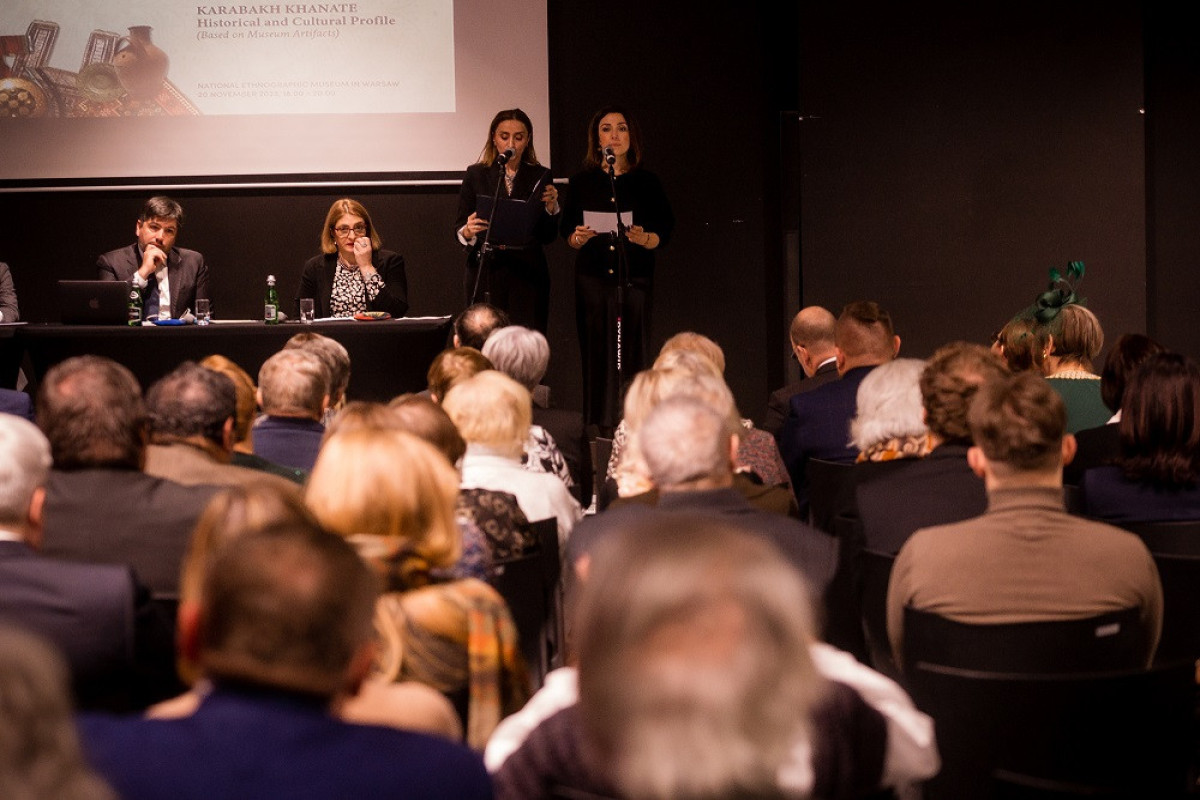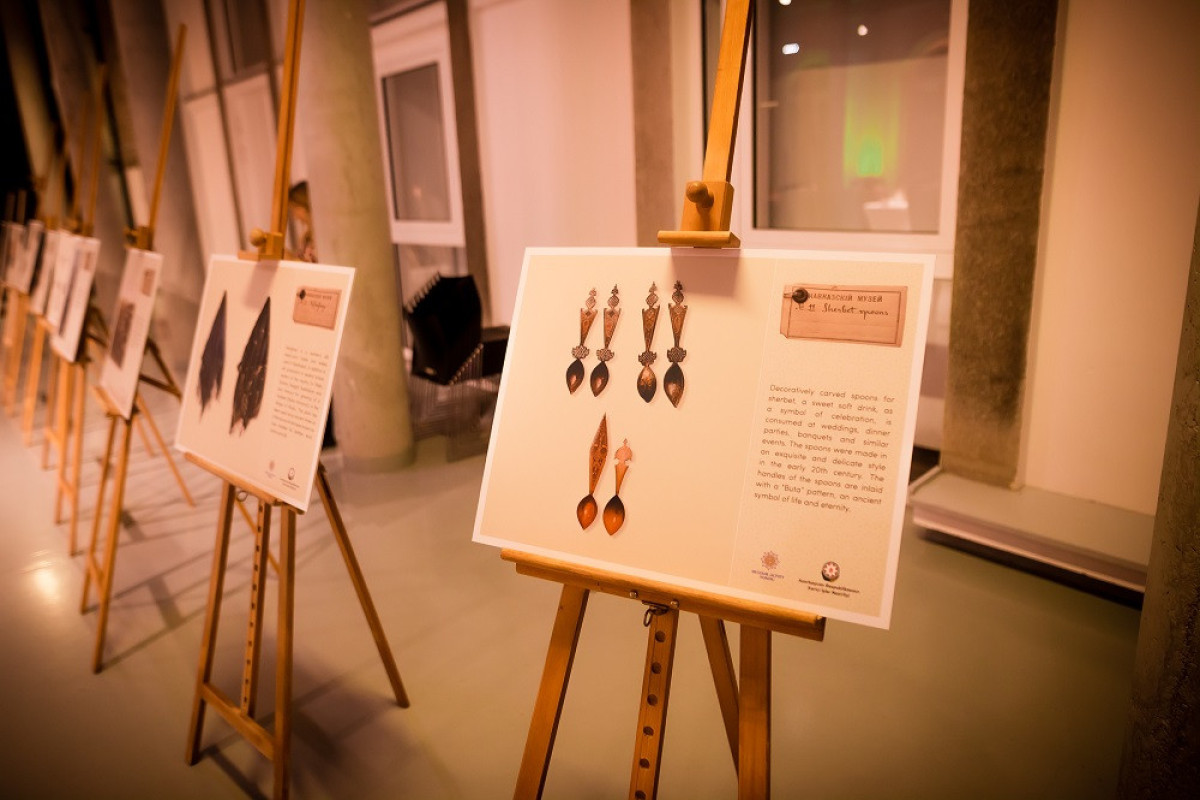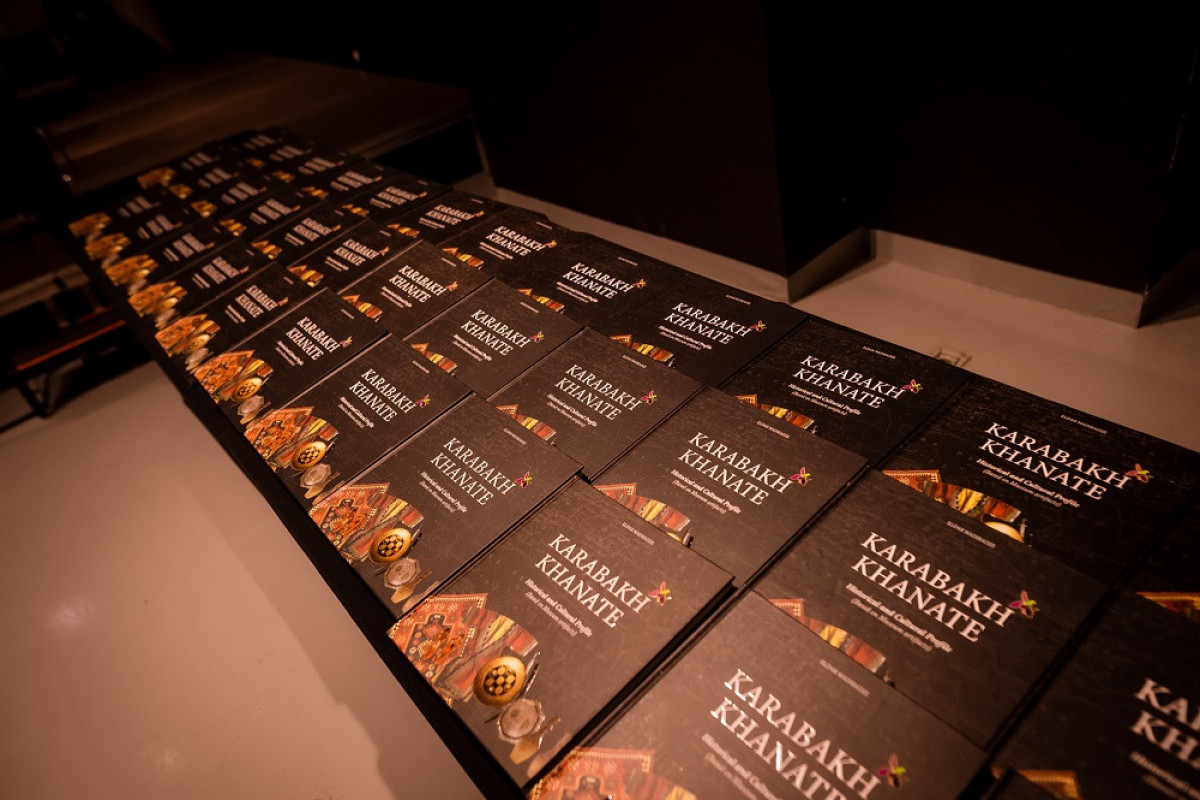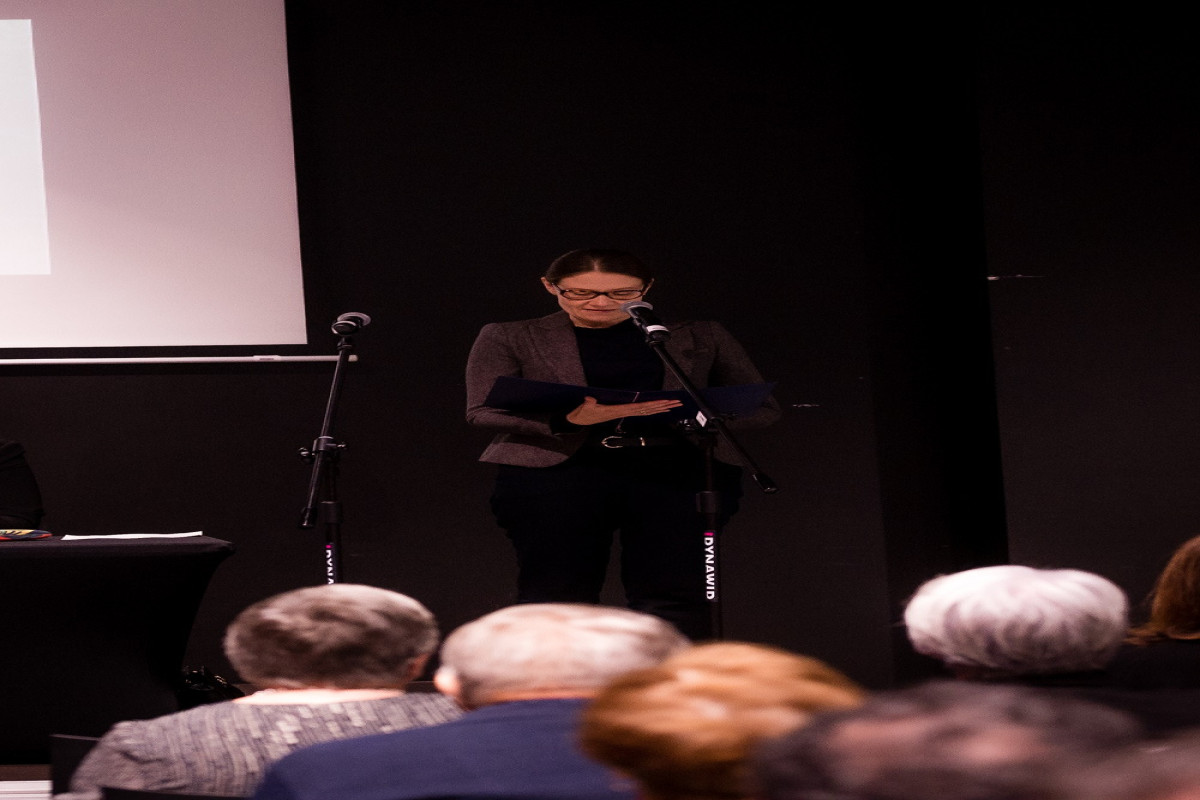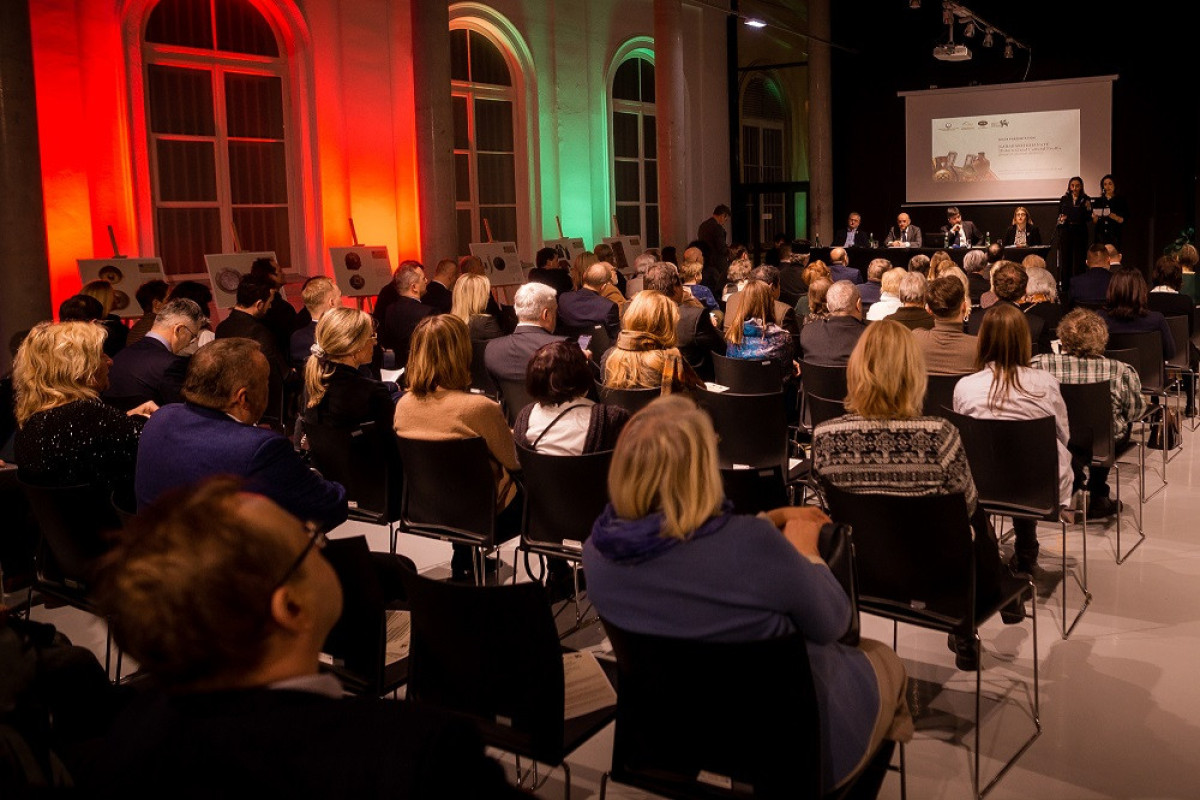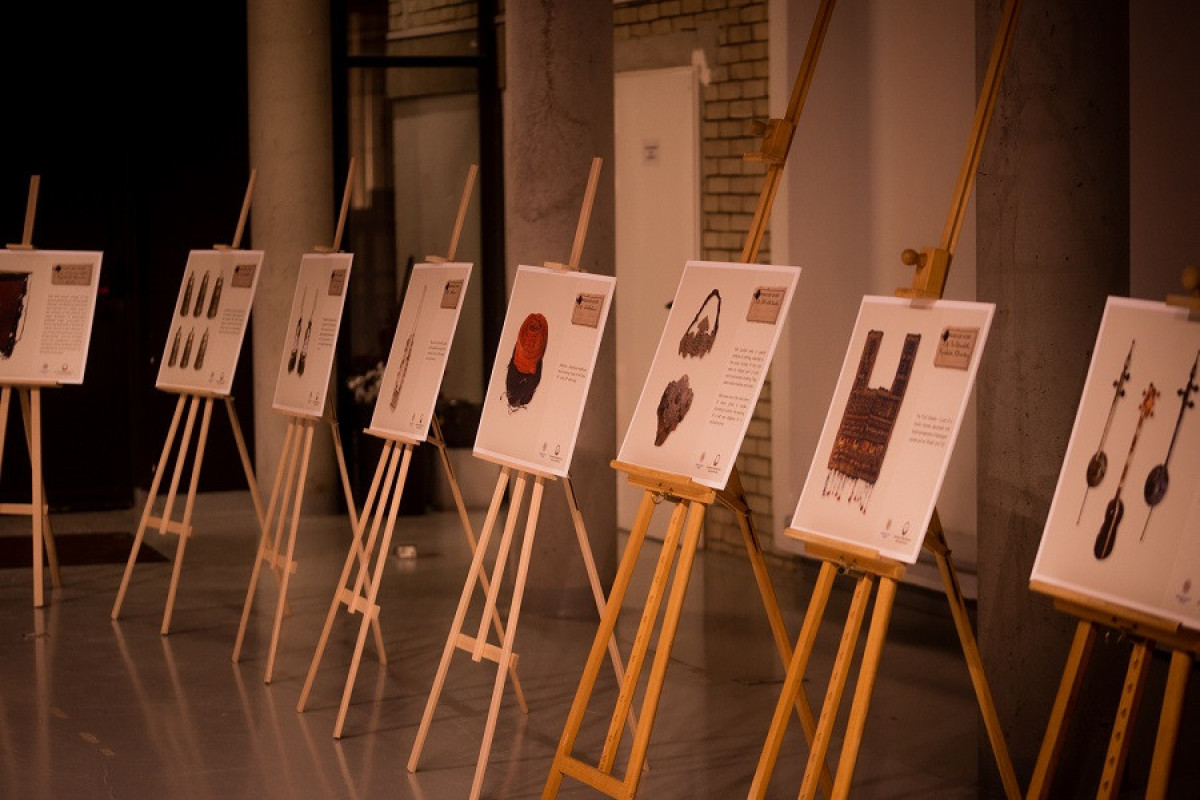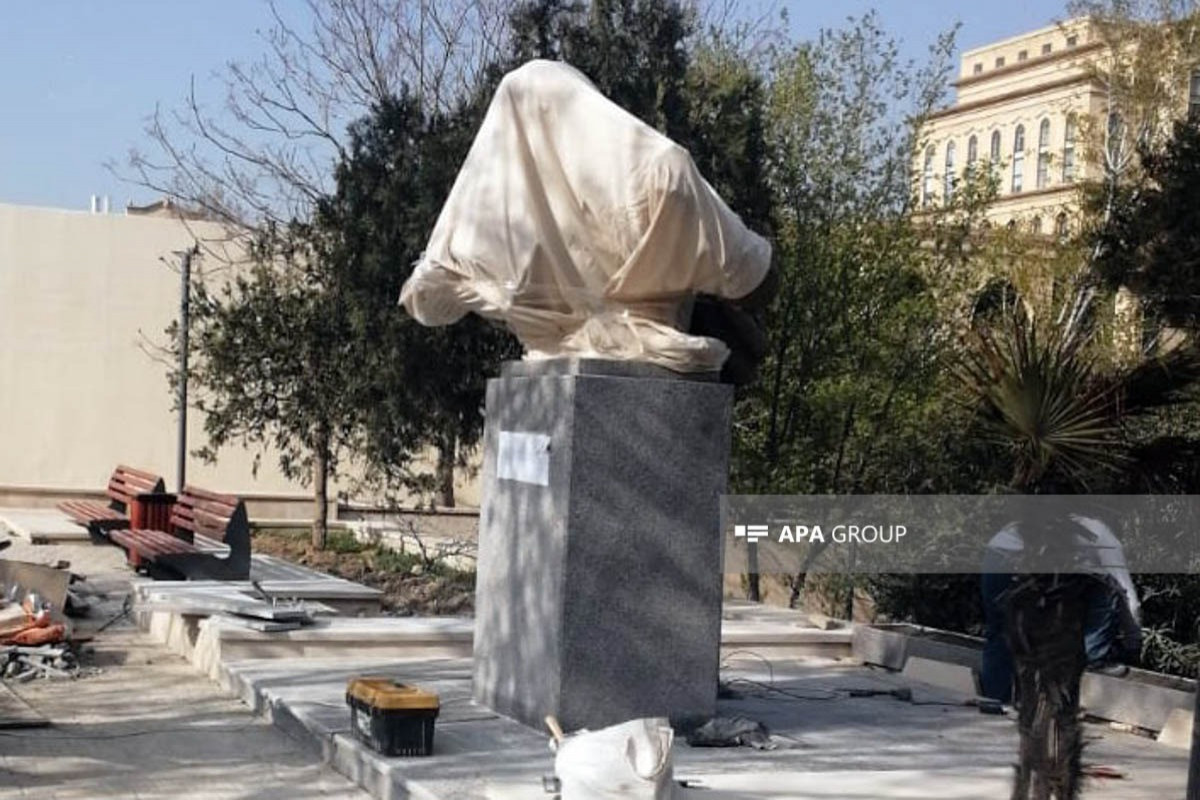The presentation of the book "Karabakh Khanate: Historical and Cultural Profile" and the exhibition entitled "Karabakh Khanate: Pearls of Azerbaijan's Cultural Heritage" took place in Warsaw, APA reports.
The presentation of the book "Karabakh Khanate: Historical and Cultural Profile," published with the support of the Ministry of Foreign Affairs of the Republic of Azerbaijan, and the exhibition titled “Karabakh Khanate: Pearls of Azerbaijan's Cultural Heritage” was held at the National Ethnographic Museum in Warsaw. The event was organized by the Embassy of Azerbaijan in Poland, with the support of the International Development Assistance Agency of the Republic of Azerbaijan and the Eurasian International Development Association. Representatives of the Ministry of Foreign Affairs of the Republic of Poland, various state institutions, academic, art, media, and business circles, as well as the mufti and religious communities of this country, along with heads and employees of accredited diplomatic missions in Poland, participated at the exhibition. Additionally, representatives of the Azerbaijani diaspora, our compatriots who are Polish citizens, and Azerbaijani students also participated.
During the presentation, Ambassador of Azerbaijan to Poland Nargiz Gurbanova, Director of the National Ethnographic Museum Magdalena Wroblevska, Chairman of the Board of the Eurasian International Development Association Elchin Asgarov, researcher of Sapienza University of Rome, Professor Daniel Pommier Vincelli, Deputy Chief Curator of the National Museum of Georgia Tebrone Nadiradze, representative of the Polish Witold Pilecki Institute, Yezhi Rohojinski, Doctor of Philosophy in History, each delivered a speech.
Speaking at the event, Ambassador N. Gurbanova expressed her gratitude to the National Museum of Georgia, the Heydar Aliyev Foundation, and the Eurasian International Development Association for their support in organizing the event. The ambassador drew attention to the fact that the establishment of sovereign feudal state institutions - khanates in the territory of Azerbaijan is one of the important stages of the centuries-old history of our nation. She emphasized that one of such khanates is the Karabakh khanate, which was founded by Panah Ali Khan Javanshir, one of the most prominent statesmen of the 18th century Azerbaijan, from the Saricali clan of the Javanshir tribe. The ambassador also gave information about the city of Shusha, the capital of the Karabakh Khanate, mentioning that its foundation was laid in 1752. She stated that the city, which, was initially named Panahabad, rapidly developed into one of Azerbaijan's primary trade and craft cities, serving as the economic center of Karabakh.
The ambassador added that as a result of the 44-day war in 2020, Azerbaijan restored its territorial integrity and fully ensured its sovereignty over the Karabakh region through the anti-terrorist measures implemented in September 2023. She informed the guests about the restoration of our country's rich cultural heritage with the liberation of territories occupied for nearly 30 years, as well as the commencement of the process of reconstruction and economic revival in the region.
N. Gurbanova outlined that the book "Karabakh Khanate: Historical and Cultural Profile" contains more than 300 artefacts that are part of the bright heritage of Karabakh and that its publication in 2022 coincides with the 270th anniversary of the city of Shusha, the heart of Karabakh. Noting that the publication of the mentioned book is a wonderful example of effective cooperation between academic circles and civil society representatives of Azerbaijan and Georgia. The ambassador specifically emphasized that last year, the President of the Republic of Azerbaijan, Ilham Aliyev, and the Prime Minister of the Republic of Georgia, Irakli Garibashvili, participated in the presentation of the book in Georgia. N. Gurbanova expressed the hope that the book will encourage historians and art critics in Poland to study the history of Karabakh and Azerbaijan as a whole.
The director of the National Ethnographic Museum, M. Vroblevska, expressed satisfaction that the museum under her leadership hosted such an event, and at the same time expressed her hope that the cooperation with the Embassy would be continued. Later, she provided the guests with information about the museum she oversees.
E. Asgarov, Chairman of the Board of the Eurasian International Development Association, stated that Azerbaijan, alongside other South Caucasus countries, was part of the Russian Empire and later the USSR, for many years, while all the primary research on the history, archaeology, and ethnography of the country and the region coincided with those years. E. Asgarov reported that the employees of the Caucasus Museum, established by Russia in Tbilisi, organized expeditions to different regions of the Caucasus, including Karabakh, and collected a large number of artefacts and brought them to the museum in different years, meanwhile most of these materials remained in the warehouses of the museum, unopened and unexamined.
Later, he noted that out of thousands of new materials and artifacts found in the archives, approximately 300 of them were included in the book, stating that these materials reflect information about the history, culture, everyday life, and beliefs of the Karabakh region, at the same time through these artefacts, he determined that the leading cultural identity in the region is the Azerbaijani identity.
Other speakers including Professor D. P. Vincelli, Researcher from Sapienza University of Rome, T. Nadiradze, Deputy Chief Curator of the National Museum of Georgia and Y. Rokhojinski, Representative of the Polish Witold Pilecki Institute and Doctor of Philosophy in History, delivered their speech regarding the corresponding topic. They spoke about the history, culture, and ethnic composition of Karabakh, as well as the Christian heritage of Caucasian Albania, expeditions organized in different years, the results of these expeditions, and the artifacts discovered.
The presentation of the book "Karabakh Khanate: Historical and Cultural Profile" and the exhibition titled "Karabakh Khanate: Pearls of the Cultural Heritage of Azerbaijan" held at the National Museum of Ethnography were met with great interest and sympathy by the guests. The exhibition continued with a banquet.
The second presentation of the above-mentioned book and the opening of the exhibition were also organized in one of the prestigious private galleries in Poland. It should be noted that the exhibition, which is open to the public, will last for a week


